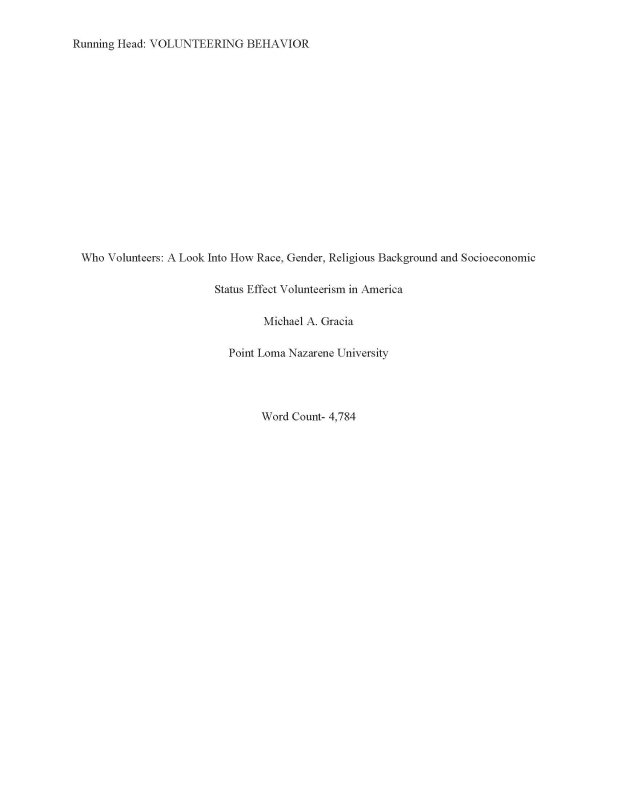- Resource Types
- Resource Languages
- Institutional Repository
 Visit the home page
Visit the home page
About Site Language
WHDL is viewable in multiple languages. Use the pull-down menu to select a language to view the site.
I changed my language, but I’m still seeing resources in the other languages?
If a resource or text has not been translated into your selected language, it will appear in the initially added language. We are always looking for help translating these resources. If you can help, contact us!
WHDL - 00011711


click to copy
Gracia, M (n.d.). What People Volunteer?: A Look Into How Race, Gender, Religion and Socioeconomic Status Effect Prosociality in America .
Gracia, MichaelWhat People Volunteer?: A Look Into How Race, Gender, Religion and Socioeconomic Status Effect Prosociality in America . , n.d.
Gracia, MichaelWhat People Volunteer?: A Look Into How Race, Gender, Religion and Socioeconomic Status Effect Prosociality in America . , n.d.
Gracia, MichaelWhat People Volunteer?: A Look Into How Race, Gender, Religion and Socioeconomic Status Effect Prosociality in America . , n.d.
Arete: The PLNU Honors Journal
81 Resources
2018
2024
2021